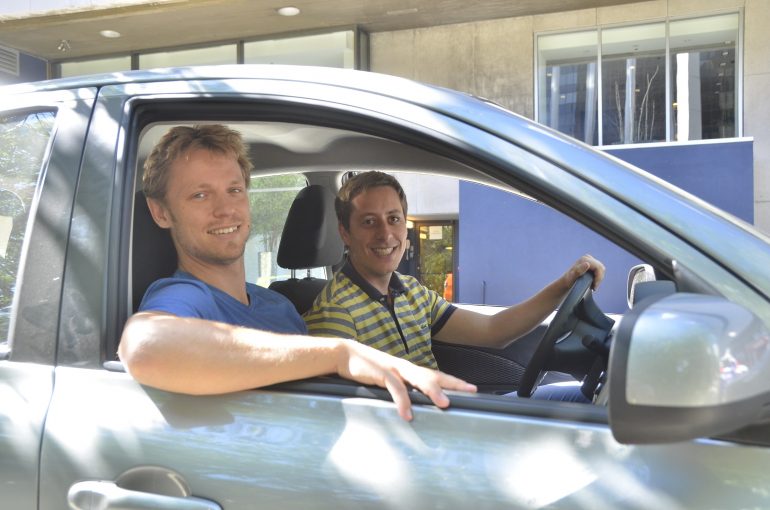HitchPlanet, western Canada’s largest ridesharing startup, just celebrated a major milestone: one million kilometres shared since it launched in 2014.
The Vancouver-based company has built up a solid following without any major marketing until now, with 36,000 users who travel together between cities using HitchPlanet’s website and mobile app. “In the last 20 months, we’ve been focused on building a compelling product to help more people travel. By listening to our members’ needs, we’ve built a solid reputation and grown through word of mouth,” said Flo Devellennes, CEO and co-founder of HitchPlanet.
Success takes time. It’s not something we wanted to rush. Now, the product strategy seems to be really working. – Flo Devellennes, CEO and co-founder of HitchPlanet.
HitchPlanet says its most popular routes include Vancouver to Whistler, Victoria to Nanaimo, and Kelowna to Calgary. Ninety percent of HitchPlanet rides occur in the Pacific Northwest, with some bookings in eastern Canada and the US. That Pacific Northwest focus was a natural outgrowth from HitchPlanet’s earlier incarnation, HitchWhistler, which Devellennes created a few years earlier to get people from Vancouver to Whistler, the tourism hotspot and famous winter sports venue.
In contrast to Uber (still outlawed in Vancouver), where users tend to focus on short-distance trips within a city and drivers can make a profit, HitchPlanet is essentially a car-pooling app for longer-distance trips. Drivers cover the cost of gas by filling vacant seats.
HitchPlanet takes a 15 percent booking fee paid by the hitchers when they book a trip. The company says it has grown revenue 700 percent in a year.
There are carpooling regulations that allow for this kind of service to exist, Devellennes explains, adding that the only exception in Canada seems to be Manitoba. Municipalities that are looking to increase vehicle occupancy rates to reduce traffic congestion can naturally look to carpooling as a solution.
The company is now trying to fund an expansion of their lean operation that has just four team members with a $250,000 equity crowdfunding campaign that ends in November. “We’ve got $95,000 vouched for us,” Devellennes says. “It would be relatively easy to get angels to invest at this point, but it is a cooler idea to be able to empower our early adopters and let them be a part of this.”
The growth of the ride-sharing sector in general has been helpful for HitchPlanet, helping people see that they can trust others when they travel with them, Devellennes said. “We’re not actually competing with Uber. We’re compatible with them.” He suggested users could take HitchPlanet from one city to a pickup point around Toronto and then have Uber get them around from there.
“The other company that’s really helped us has been Airbnb, which is a little closer to what we aspire to be,” Devellennes said, pointing to that company’s culture and mission. “They’ve been very inspiring in how they portray how we can get an experience and meet people when we travel.”
Along the way to these recent milestones, the hardest lessons for the founders have been around finding the time to build a product that really works for people. “You think you can build a product pretty quickly, throw it out there and it will just work,” Devellennes said.
“But after we launched we went through three or four iterations of the booking process. Then we realized our customers were primarily using it on their phones, so we needed to raise money to build capability for people to use it like that. Success takes time. It’s not something we wanted to rush. Now, the product strategy seems to be really working.”


